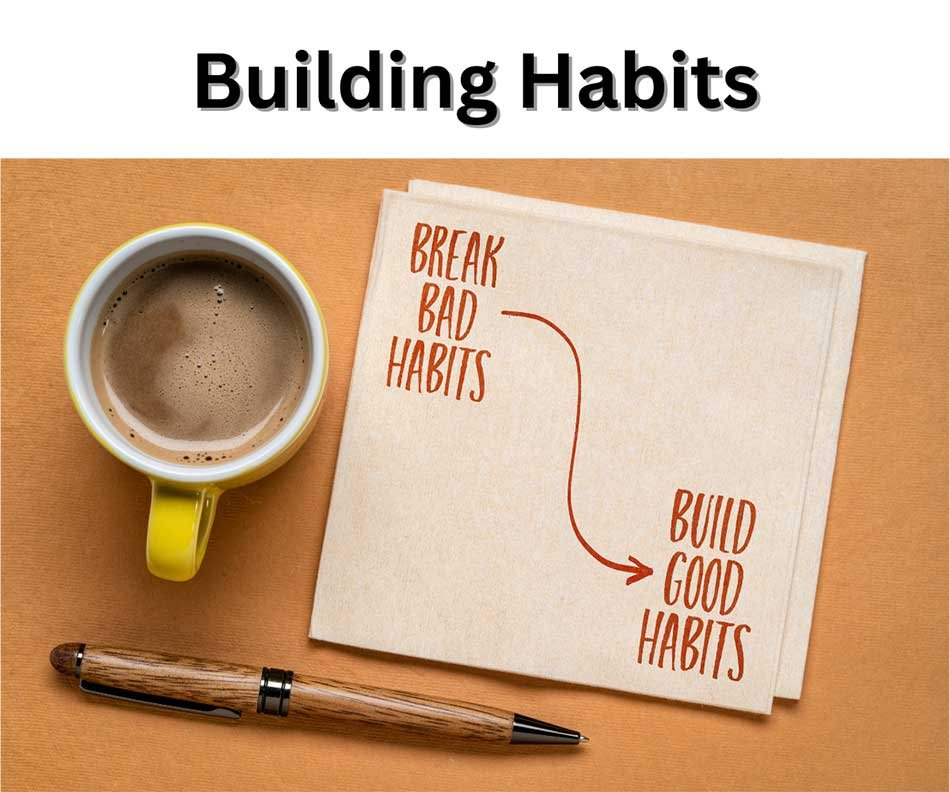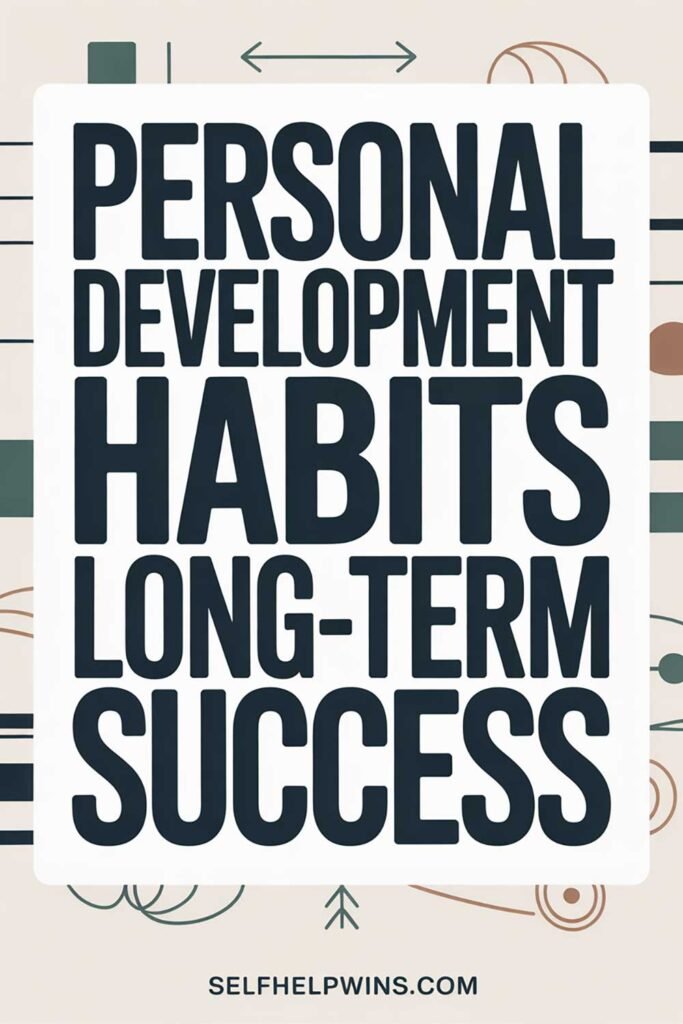
If you know someone who could benefit from this article, please share it with them. Building effective habits can set the foundation for a healthier, more productive life.
Building Habits: The Foundation for Lasting Change
Why Habits Matter
Habits are the small, repeated actions that shape your daily life. They influence your productivity, health, and overall well-being. By intentionally building positive habits, you can create a life aligned with your goals and values.

The Science of Habits
Habits are formed through a neurological process known as the habit loop, which consists of:
- Cue: A trigger that initiates the behavior.
- Routine: The behavior itself.
- Reward: The positive outcome that reinforces the behavior.
Understanding this loop is key to building and sustaining habits.
How to Build Positive Habits
1. Start Small
Big changes can feel overwhelming. Begin with manageable actions that are easy to integrate into your routine.
- Example: Instead of committing to an hour-long workout, start with 5 minutes of stretching each day.
2. Set Clear Goals
Define what you want to achieve and why it matters to you. Clarity provides motivation and direction.
- SMART Goals:
- Specific: What exactly do you want to accomplish?
- Measurable: How will you track progress?
- Achievable: Is it realistic?
- Relevant: Does it align with your values?
- Time-bound: When do you want to achieve it?
3. Leverage Habit Stacking
Attach your new habit to an existing one to create a seamless transition.
- Example: After brushing your teeth (existing habit), practice 2 minutes of mindfulness (new habit).
4. Use Triggers
Identify cues that will remind you to perform your habit.
- Example Triggers:
- Time of day (e.g., morning or bedtime).
- Location (e.g., your workspace).
- Emotional state (e.g., feeling stressed).
5. Track Your Progress
Monitoring your habits provides motivation and accountability.
- Tools to Use:
- Habit trackers (digital or paper).
- Journals to record daily efforts.
- Apps like Habitica or Streaks.
6. Celebrate Small Wins
Rewarding yourself reinforces positive behavior and encourages consistency.
- Example: Treat yourself to a favorite activity after completing a week of your habit.
7. Stay Consistent
Repetition is crucial for habit formation. Aim to perform your habit daily, even if only for a short time.
- Pro Tip: Missing one day doesn’t mean failure. Get back on track as soon as possible.
8. Be Patient
Habits take time to form. Research suggests it can take anywhere from 21 to 66 days to establish a new habit, depending on complexity.
Overcoming Common Challenges
1. Lack of Motivation
- Solution: Focus on your “why.” Remind yourself of the long-term benefits of your habit.
2. Time Constraints
- Solution: Start with habits that take less than 5 minutes and gradually expand them.
3. Perfectionism
- Solution: Allow room for mistakes. Progress, not perfection, is the goal.
4. Negative Triggers
- Solution: Identify and avoid situations that hinder your habit-building efforts.
Examples of Positive Habits
- Health: Drink a glass of water every morning, exercise daily, or prepare healthy meals.
- Productivity: Write a to-do list each evening, block distractions during work, or practice time management techniques.
- Mindset: Practice gratitude, meditate, or read for personal growth.
Practical Exercises
- Habit Journal: Write about your progress, challenges, and achievements daily.
- Accountability Partner: Share your goals with a friend or mentor to stay motivated.
- Visualization: Imagine yourself successfully performing your habit to build confidence.
- 30-Day Challenge: Commit to a new habit for 30 days to make it part of your routine.
Picture This
Imagine waking up each day with clarity and purpose. Your habits align with your goals, creating a foundation for productivity, health, and happiness. Small, consistent actions lead to significant results, and you feel empowered by the positive changes in your life. What habit will you start building today?






